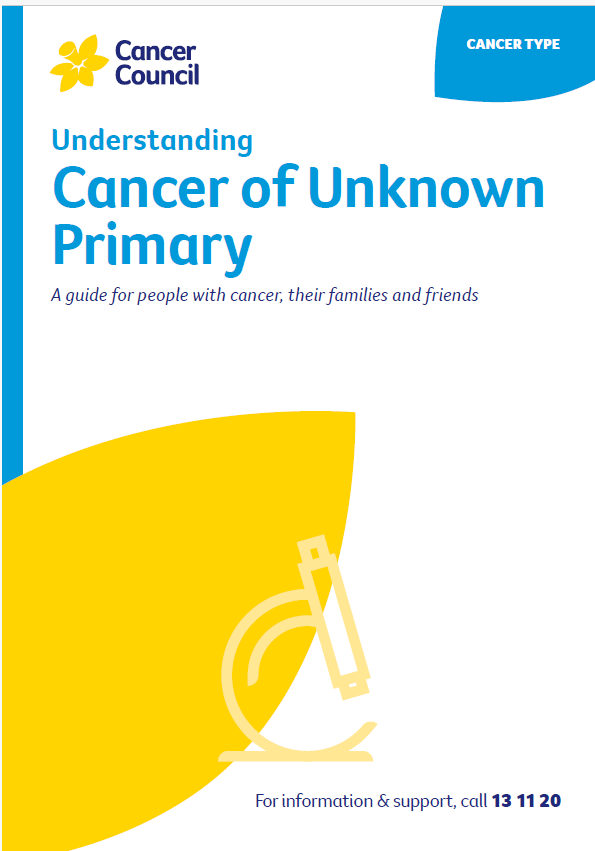- Home
- Cancer of unknown primary (CUP)
- Treatment
Treatment for CUP
When tests have been unable to find the primary cancer, you will be given a diagnosis of Cancer of Unknown Primary (CUP). This is often a difficult time and it can be hard to accept that the primary site cannot be found. On the other hand, you may feel relieved that the tests are over and that the focus can now be on treating the cancer.
Learn more about:
- Treatment options
- Making treatment decisions
- Chemotherapy
- Hormone therapy
- Targeted therapy and immunotherapy
- Radiation therapy
- Surgery
- Palliative treatment
Treatment options
The treatment recommended by your doctors will depend on:
- where the secondary cancer is in the body and how far it has spread
- where they think the cancer started
- how quickly the cancer seems to be growing
- how you are feeling (your symptoms)
- your general health, age and treatment preferences
- what treatments are currently available and whether there are any newer treatments available on clinical trials
- the aim of treatment (whether to remove as much of the cancer as possible, slow the cancer’s growth or relieve symptoms).
The most common treatment for CUP is chemotherapy, and many people also have radiation therapy and surgery. Some cancers may respond to hormone therapy, targeted therapy or immunotherapy. Your doctor may suggest a combination of treatments.
→ READ MORE: Making treatment decisions
I have found it complex to talk to people about my cancer. I can explain it, but they find it hard to understand. It does seem incomprehensible to have a cancer that has spread but no named starting point.
Jane
Video: Treatment options for CUP
Podcast: Making Treatment Decisions
Listen to more episodes from our podcast for people affected by cancer
More resources
Prof Chris Karapetis, Network Clinical Director (Cancer Services), Southern Adelaide Local Health Network, Head, Department of Medical Oncology, and Director, Clinical Research in Medical Oncology, Flinders Medical Centre and Flinders University, SA (Clinical review); Dr Amey Aurangabadkar, Radiologist, Illawarra Radiology Group, NSW; Clare Brophy, Consumer; Prof Katherine Clark, Clinical Director of Palliative Care, NSLHD Supportive and Palliative Care Network, Northern Sydney Cancer Centre, Royal North Shore Hospital, NSW; Prof Wendy Cooper, Senior Staff Specialist, Tissue Pathology and Diagnostic Oncology, NSW Health Pathology, Royal Prince Alfred Hospital, NSW; A/Prof Richard Gallagher, Head and Neck Surgeon, Director of Cancer Services and Head and Neck Cancer Services, St Vincent’s Health Network, NSW; Dr Chloe Georgiou, Oncology Research Fellow, Australian Rare Cancer Portal, and Oncology Trials Fellow, Bendigo Health Cancer Centre, VIC; Dr Susan Harden, Radiation Oncologist, Peter MacCallum Cancer Centre, VIC; Justin Hargreaves, Medical Oncology Nurse Practitioner, Bendigo Health Cancer Centre, VIC; Dr Laura Kirsten, Principal Clinical Psychologist, Nepean Cancer Care Centre, NSW; Prof Linda Mileshkin, Medical Oncologist, Peter MacCallum Cancer Centre, VIC; Caitriona Nienaber, 13 11 20 Consultant, Cancer Council WA.
View the Cancer Council NSW editorial policy.
View all publications or call 13 11 20 for free printed copies.

